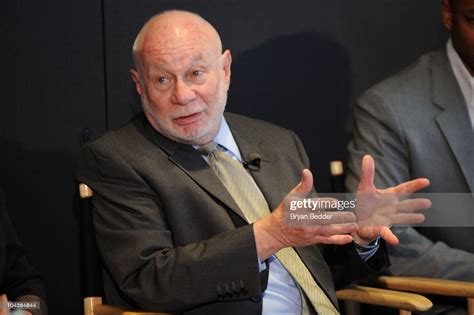A Quote by Steven Pinker
We instinctively fear snakes, but we appear not to be afraid of fast cars, which are a real danger now. This suggests our emotions were shaped by our evolutionary environment not the one we grew up in.
Related Quotes
...our societies appear to be intent on immediate consumption rather than on investment for the future. We are piling up enormous debts and exploiting the natural environment in a manner which suggests that we have no real sense of any worthwhile future. Just as a society which believes in the future saves in the present in order to invest in the future, so a society without belief spends everything now and piles up debts for future generations to settle. "Spend now and someone else will pay later."
There was no name for the disease; his body had gone insane, forgotten the blueprint by which human beings were built. Even now the disease still lives on in his children. Not in our bodies, but in our souls. We exist where normal human children are expected to be; we're even shaped the same. But each of us in our own way has been replaced by an imitation child, shaped out of a twisted, fetid, lipidous goiter that grew out of Father's soul.
I mean, these are kids that are getting on rail cars, riding the top of rail cars all the way up through Mexico. I mean, the danger that they're put in, the sexual assaults that are occurring - I mean, all of this is a great consternation, I think, for any of us. But when they come here and then they're dumped on our cities and our counties and our state is expected to pick up the costs, there's a point in time where you say, 'Quit giving these individuals incentives to come up and then be resettled in the United States'. That's the real issue for me.
Put simply, behavioural economics argues that human beings' decision-taking is guided by the evolutionary baggage which we bring with us to the present day. Evolution has made us rational to a point, but not perfectly so. It has given us emotions, for example, which programme us to override our rational brain and act more instinctively.
[In 1951] we were also told that the Russians could be parachuting from planes over our town at any time. These were the same Russians that my uncles had fought alongside only a few years earlier. Now they had become monsters who were coming to slit our throats and incinerate us. It seemed peculiar. Living under a cloud of fear like this robs a child of his spirit. It's one thing to be afraid when someone's holding a shotgun on you, but it's another thing to be afraid of something that's just not quite real.
'Environment' is not an abstract concern, or simply a matter of aesthetics, or of personal taste - although it can and should involve these as well. Man is shaped to a great extent by his surroundings. Our physical nature, our mental health, our culture and institutions, our opportunities for challenge and fulfillment, our very survival - all of these are directly related to and affected by the environment in which we live. They depend upon the continued healthy functioning of the natural systems of the Earth.
The great paradox of determinism and free will, which has held the attention of the wisest of philosophers and psychologists for generations, can be phrased in more biological terms as follows: If our genes are inherited, and our environment is a train of physical events set in motion before we were born, how can there be a truly independent agent within the brain? The agent itself is created by the interaction of the genes and the environment. It would appear that our freedom is only a self delusion.
We Aryans are those of European descent who are racially conscious and who have committed our lives to our people's survival and evolutionary advancement. We shall do our duty. We shall not surrender our freedom and our very existence to Jewish or any other power. We shall preserve our heritage and our hard-won rights and freedoms. We shall guide our people up the evolutionary stairway to the stars.
And finally, there is another danger: the emergence of nonideological but very aggressive 'isms,' which are really quite new. Let me at least name them: We all care about human rights, but I am afraid of 'human rightism.' We all want to have a healthy environment, but I see the danger in environmentalism. To put it politically correctly, I admire the second gender, but I fear feminism. We all are enriched by other cultures, but not by multiculturalism. I am aware of the importance of voluntary associations, but I fear NGOism.



































